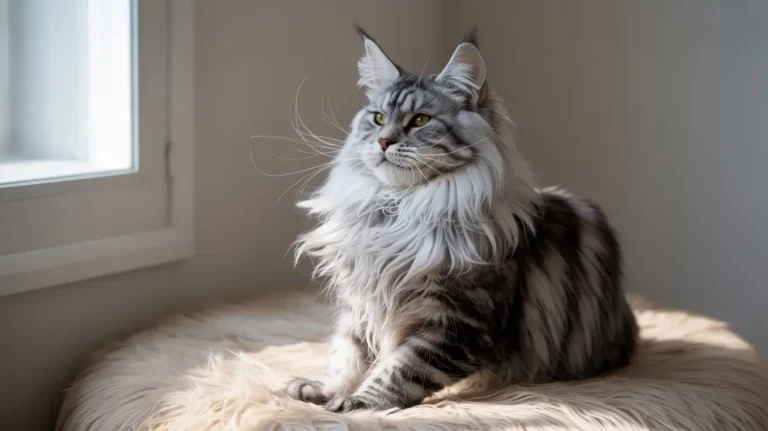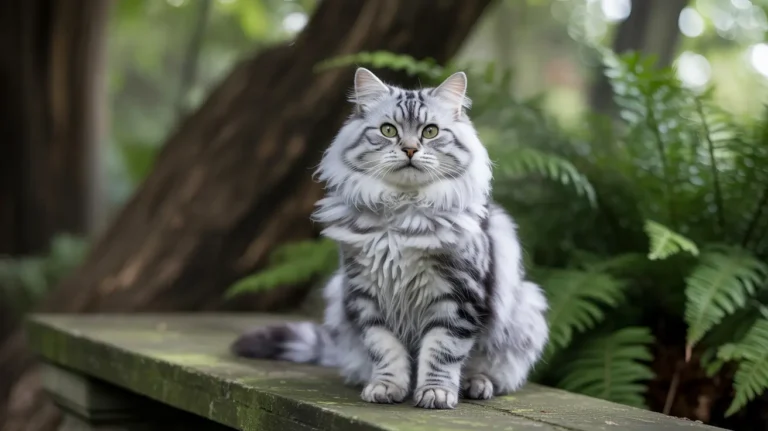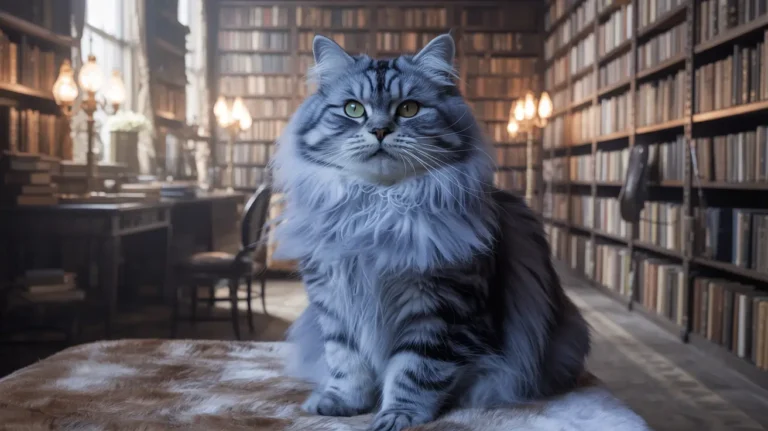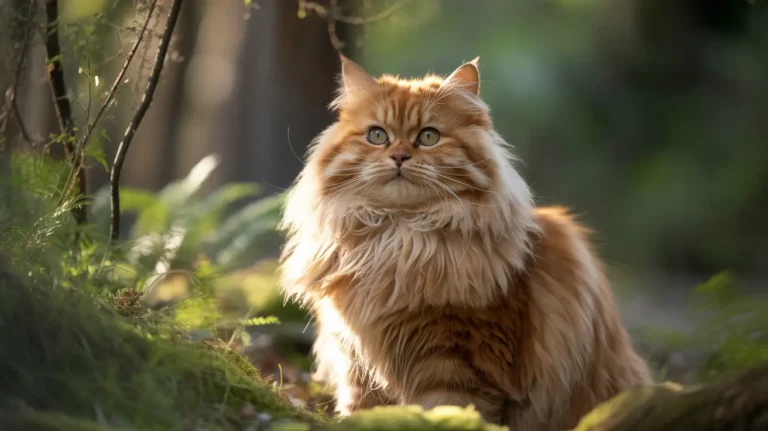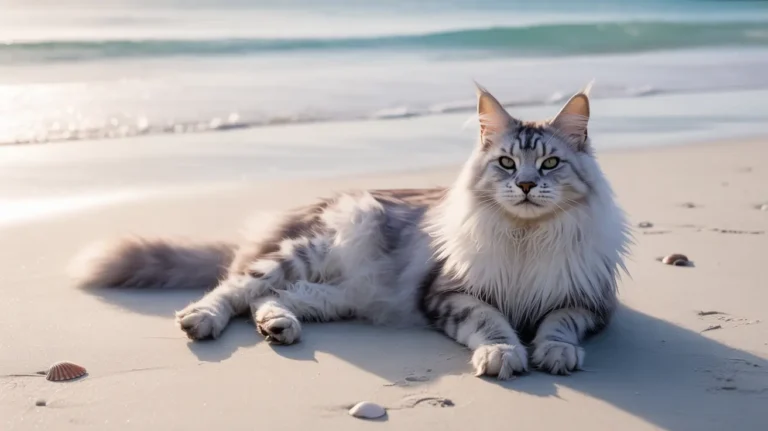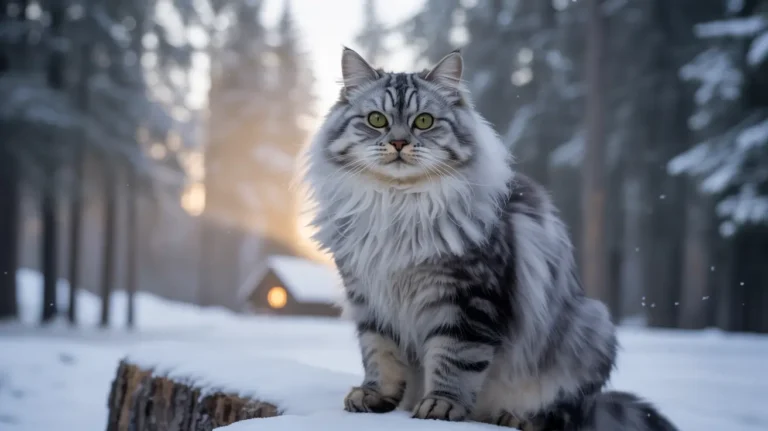Maine Coon Cats Guide: History, Traits & Care Tips
The Maine Coon is one of the most iconic and cherished cat breeds in the world. Known for their massive size, luxurious coats, and charming personalities, these cats often steal the hearts of everyone they meet. Their water-resistant fur and friendly, dog-like demeanor make them truly unique among felines.
This guide is crafted to help current and future Maine Coon owners understand this majestic breed from every angle—its history, physical traits, personality, grooming needs, health, and more. Whether you plan to adopt or simply want to learn about these “gentle giants,” this article has everything you need.
Origin and History
The origin of the Maine Coon is shrouded in mystery. Some believe they descended from cats brought by Viking explorers. In contrast, others link them to long-haired felines belonging to Marie Antoinette, who supposedly sent them ahead to America during her escape plans.
More realistic theories suggest they evolved from domestic short-haired cats and long-haired breeds brought over by European settlers. Recognized as one of the oldest natural breeds in North America, the Maine Coon was officially acknowledged by the Cat Fanciers’ Association (CFA) in the late 19th century.
Their popularity surged due to their strong survival traits and stunning looks, earning them the title of “gentle giants.” Today, they’re celebrated globally.
Physical Characteristics
Maine Coons are one of the largest domesticated cat breeds. Males often weigh between 13–18 pounds, and females between 8–12 pounds. They boast a long, muscular body with a broad chest and a thick, bushy tail.
Notable features include tufted ears, a ruff of fur around the neck, and a lynx-like facial structure.
Their double-layered coat is silky and water-resistant, available in a wide range of colors and patterns, with tabby being the most common. Their expressive, large eyes can be green, gold, or copper. Unlike most cats, Maine Coons mature slowly and reach full size between 3 to 5 years.
Here’s a quick overview of their most defining physical features:
| Feature | Description |
| Size | Large (Males: 13–18 lbs, Females: 8–12 lbs) |
| Height | 10–16 inches |
| Length | Up to 40 inches including tail |
| Tail | Long and bushy |
| Ears | Large, tufted with lynx-like tips |
| Eyes | Large, expressive, oval-shaped; colors range from gold to green |
| Coat | Long, shaggy, water-resistant; seasonal shedding |
| Colors | Tabby, solid, tortoiseshell, bi-color, and more |
Temperament and Personality
Maine Coons are affectionate without being overly dependent. They enjoy the company of their humans but don’t constantly demand attention. Their high intelligence and curiosity often translate into playful behavior, and they’re known to play fetch or follow their owners around the house.
These cats are generally gentle, making them excellent companions for families with children or other pets. Their soft, chirping vocalizations set them apart from louder breeds, and they often use trills and meows to communicate.
Living Needs and Environment
While Maine Coons can adapt to both indoor and outdoor living, indoor environments are safer. They thrive in homes with plenty of vertical space—cat trees, perches, and interactive toys are essential. They don’t enjoy being left alone for extended periods.
If you’re away often, consider having another pet for companionship. Whether your home is calm or bustling, Maine Coons adjust well as long as they get love and attention.
Do Maine Coons Get Along with Other Pets?
Maine Coons are known for their gentle and friendly nature. When introduced properly, they usually get along well with other cats, dogs, and even small pets. They aren’t aggressive or overly territorial, which makes them easygoing in multi-pet homes.
Early socialization plays a big role in how well they adjust to other animals. Maine Coons often act more like dogs — curious, playful, and eager to bond. They may follow other pets around or try to play with them gently.
Always introduce new pets slowly. Use scent-swapping techniques and give each animal space to feel safe. With patience and positive reinforcement, Maine Coons can become best friends with dogs or other cats. Just avoid rushing the process, especially with older or shy pets.
Their calm temperament makes them an ideal choice for families with multiple animals. They truly enjoy companionship — both human and furry!
Diet and Nutrition
Due to their size and energy level, Maine Coons require a protein-rich diet. Look for high-quality cat food with meat as the first ingredient. Portion control is important to prevent obesity.
Feed them according to weight and age, and ensure a healthy balance of wet and dry food. Avoid giving them onions, garlic, chocolate, or processed human foods.
Grooming and Coat Care
Maine Coons have a thick, medium-to-long double coat that needs brushing 2–3 times a week to prevent mats and tangles. Use a wide-toothed comb or a slicker brush.
They shed moderately year-round and heavily in spring and fall. Bathing is rarely needed, but can help during shedding season. Keep their nails trimmed and ears clean to avoid infections.
Maine Coon Growth Stages: From Kitten to Gentle Giant
Maine Coons grow slower than most cat breeds. While many cats reach full size by 1 year, Maine Coons take 3 to 5 years to fully mature. At 3 to 6 months, they begin developing strong bones and a fluffy coat. By 1 year, they may look full-grown, but their muscles and chest keep expanding.
Their long tail, thick ruff, and big paws are early signs of their breed, even in kittenhood. You’ll also notice their playful, dog-like personality emerging. From age 2 to 3, Maine Coons fill out more — gaining weight and height steadily. Full adult males often weigh 13–18 lbs; females 8–12 lbs.
Nutrition is key during growth. Feed high-protein food and avoid overfeeding to support joint health.
Regular vet visits help track growth and detect any issues early. Be patient — these gentle giants take their time becoming majestic adults!
Common Health Concerns
Maine Coons are generally healthy but are prone to a few hereditary conditions:
Regular veterinary visits, proper screenings, and a healthy lifestyle can help detect and manage these conditions early.
Exercise and Mental Stimulation
Maine Coons need daily physical and mental activity. Encourage play with feather wands, interactive toys, and puzzle feeders.
They respond well to clicker training and can even walk on a leash with practice. Their intelligence means they enjoy learning tricks and solving challenges, so rotate toys to keep them engaged.
How to Train a Maine Coon: Tips for Smart & Social Cats
Maine Coons are one of the smartest cat breeds. Their curiosity and social nature make them easier to train than most cats. Start with basic tricks like “sit” or “come” using a clicker and treats. Keep sessions short, fun, and positive. Praise matters more than punishment.
Litter training usually comes naturally, especially in kittens. Reinforce good behavior and avoid yelling — they respond better to calm correction. You can teach them to walk on a leash, play fetch, or even use puzzle feeders. These activities keep their brain active and reduce boredom.
Interactive toys, scratch posts, and rotating play routines help prevent bad habits like scratching furniture or excessive meowing. Always be patient. Each cat learns at its own pace. With time and bonding, Maine Coons can learn routines, names, and even open doors!
Training isn’t just about obedience — it’s a great way to build trust and keep them mentally happy.
Adopting or Buying a Maine Coon
Whether adopting from a shelter or buying from a breeder, do thorough research. Reputable breeders provide health certificates and let you meet the kittens and parents.
Ask about vaccinations, health history, and socialization. Expect to pay between $800–$2,000 for a purebred kitten. Don’t forget to budget for initial supplies: litter box, carrier, toys, scratching posts, and food.
Ethically, avoid kitten mills and support rescue organizations when possible.
Fun Facts About Maine Coon Cats
Maine Coon cats are not just loved for their looks and size — they also have some fascinating claims to fame. From world records to celebrity fans, these gentle giants have captured hearts all over the globe.
Here are some fun and surprising facts about them:
Maine Coon vs Other Cat Breeds: What Makes Them Unique?
Maine Coons are different from most cats in many ways — from their looks to their personality. They’re larger, fluffier, and often more sociable. Unlike Persians or British Shorthairs, Maine Coons are highly active and playful. They love interaction and don’t mind following their owners around like a dog.
Their coat is water-resistant, unlike many other long-haired cats. This trait evolved to help them survive harsh, cold climates. Compared to Ragdolls, Maine Coons are more independent. While affectionate, they don’t constantly demand cuddles and space.
Siberian cats share some traits with Maine Coons, like their thick coat and cold-weather origins, but Siberians tend to be slightly smaller and more reserved. Maine Coons are typically more outgoing and playful, with a sturdier build and a squarer jawline.
Norwegian Forest Cats may look similar too, but Maine Coons have a boxier muzzle, thicker tails, and are generally more outgoing. Their voice is also unique — they chirp and trill instead of meowing loudly. This sets them apart behaviorally and makes them extra charming.
These features make Maine Coons perfect for those wanting a loyal, playful, and low-maintenance companion with a majestic look.

